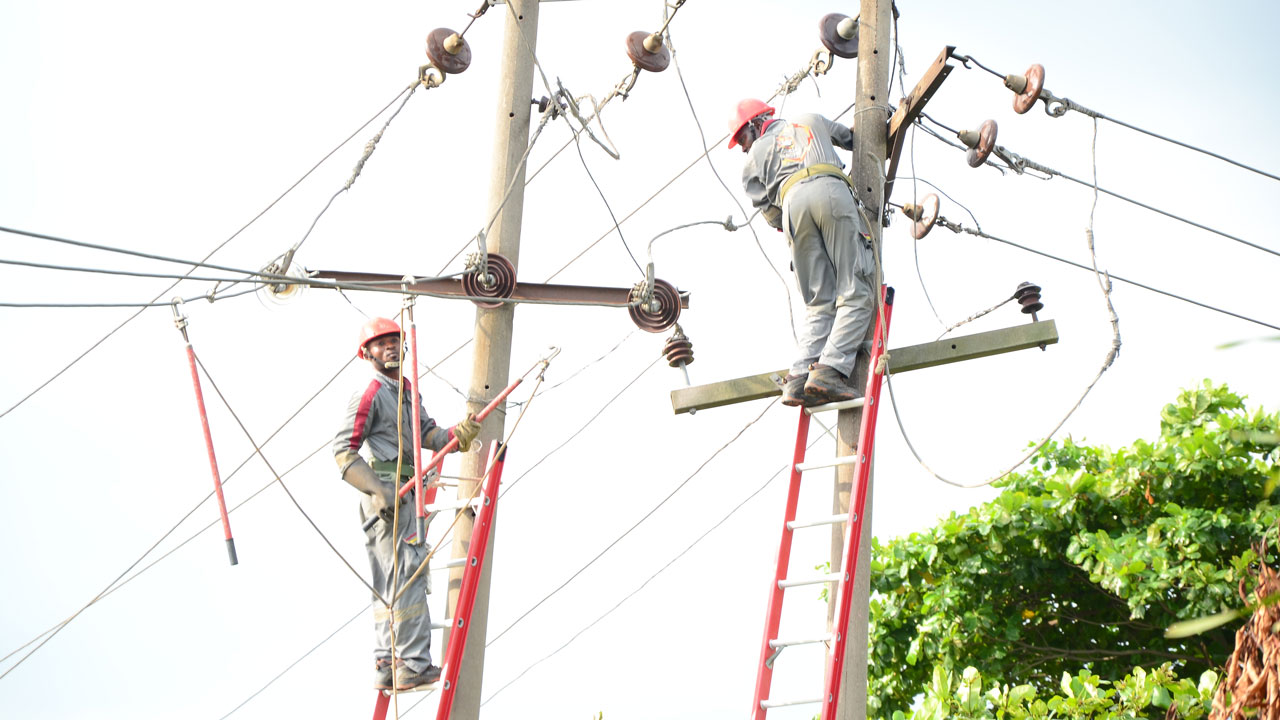
Nigeria’s economic potential and social development are undermined by the country’s poor infrastructure and limited access to the finance needed to improve it.
To overcome this, the Government of Nigeria needs support to improve both how it spends money on infrastructure and how it attracts the private investment needed to develop infrastructure that is climate-resilient and fit-for-purpose.
To pave the way towards a more prosperous Nigeria, the Foreign, Commonwealth and Development Office is funding the UK Nigeria Infrastructure Advisory Facility, a £40 million programme providing technical assistance on infrastructure to the Federal Government of Nigeria and selected state governments. It aims to stimulate sustainable economic growth through transforming Nigeria’s capacity to plan, finance, deliver and maintain climate-smart critical infrastructure in the power, roads, and infrastructure finance sectors, directly benefiting the poorest and most vulnerable Nigerians.
Specifically, it seeks to:
Transform institutions at policy level to reduce poverty and address climate change across Nigeria’s power sector;
Gather infrastructure data to optimise spending and prioritise climate-smart decision-making, ensuring that at least one fifth of roads maintenance projects in the federal budget are analysed through a roads assessment system;
Establish a $2 billion project pipeline with private and public partners.
Tetra Tech International Development has been delivering this programme since 2019, providing flexible, demand-led technical assistance in the power and infrastructure finance sectors which leverages political windows of opportunity through a portfolio of interventions. UKNIAF partners with Ministries, Departments and Agencies of the Government of Nigeria to design and then deliver policy interventions which lead to greater investment in, and access to, climate resilient infrastructure.
Our approach is guided by three main aspects:
- Prioritising technical assistance to counterparties of Nigeria’s Federal Government with a clear commitment to change and mutual accountability, ensuring that climate, poverty and gender are well embedded in each sector of our technical delivery;
- Building strong partnerships development partners, development finance institutions and the private sector; and
- Using Tetra Tech’s global network of specialists, to providing support across a wide range of technical expertise.
Supporting climate resilient infrastructure
UKNIAF is now largely funded through the International Climate Finance (ICF) budget, after the team restructured the programmes exercise to reflect climate priorities at a global and national level. The diversity of the three sectors and UKNIAF’s aim to change the foundations of how infrastructure is strategically planned, implemented, and managed correspond with the ICF’s primary goal: achieving transformational change within critical institutions. UKNIAF’s climate work across each sector includes:
- Power: building the capacity of critical agencies across the sector to ensure the efficient use of electricity and the reduction of greenhouse gas emissions on the electricity grid.
- Infrastructure Finance: strengthening institutions to unlock finance for sustainable infrastructure. The finance attracted will further help reduce poverty across Nigeria.
- Climate Finance Blending Facility, leveraging private finance into off grid electricity, and developing private sector energy / low carbon product markets.
Results
Setting up the power market for a sustainable future for all: we supported a tariff increase which will move the power market towards cost-reflexivity while protecting vulnerable consumers and launching the first independent review of the distribution companies in partnership with the World Bank.
Supporting Nigeria’s COIVD-19 response: as part of Nigeria’s national COVID-19 response, we surveyed nearly 12,000 kilometres of highways. This helped identify where the free flow of traffic was essential food security and the provision of fuel.
Providing support for policy development: The UKNIAF team drafted Nigeria’s Roads Fund Bill and saw through its initial reading at the National Assembly.
Providing support for policy development: The UKNIAF team drafted Nigeria’s Roads Fund Bill and saw through its initial reading at the National Assembly.
Providing accountability in the power sector: we work with Nigeria’s electricity regulator to create a data-led regulation approach and tools. These allow 12m consumers to independently verify power provision to their homes and prevents unfair power cuts for the poorest.
Securing $500m of committed investment: in partnership with the African Development Bank and selected state governments, the UKNIAF team prepared Special Agricultural Processing Zone projects for transaction stage.
We lead reform initiatives in the power space through the ‘Women on the Grid Hub’, the sub-national electricity policy pilot programmes, and the first Distribution Companies audit.
We developed an Integrated Resource Plan to provide a pathway to meeting the long-term electricity demands of Nigeria and its 213 million people whilst meeting the Energy Transition goals of Net Zero by 2060.
At a glance
Location
Nigeria
Implementation period
2019–2025
Client
Foreign, Commonwealth and Development Office, UK